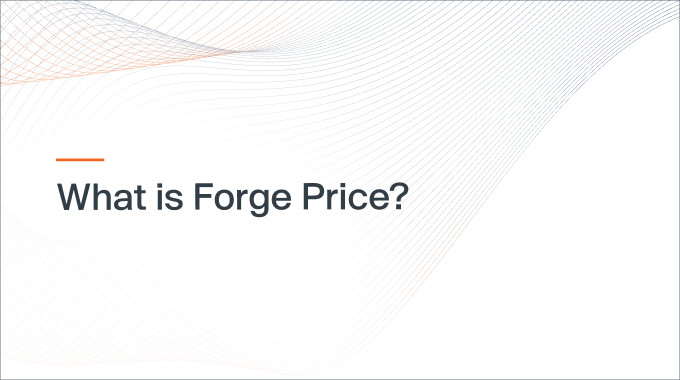In today’s new era of monetary tightening and with the possibility of sustained volatility ahead, it is increasingly likely that many of the world’s 1,200 unicorns—privately held companies valued at more than $1 billion like ByteDance, SpaceX, Instacart and Canva—will remain private for the time being.1
The prospect of up to an estimated $3.9 trillion in unicorn value remaining locked up presents both a challenge and an opportunity for investors.2 The key to unlocking that value rests in large part on finding sources of data that can better illuminate valuations as well as innovators who can use that information to create liquidity options.
Making inroads into private markets valuations
On the forefront of this movement is Nikkl, a fintech start-up dedicated to helping the employees of unicorn companies gain near-term access to their equity stakes. Co-founded by Dan Siciliano, a former professor and associate dean at Stanford Law School and current Chair of the $100 billion Federal Home Loan Bank of San Francisco, Nikkl seeks to shine a spotlight on the oftentimes murky waters of private company valuations.
“Our goal is to understand the current value of a company,” explains Siciliano. “Not just the preferred share value or secondary market trading value, but the appropriate common share value in consideration of all the dynamics that are happening in the marketplace at a given time.”
Determining the valuations of non-public companies has always been challenging, making private markets less accessible, less liquid and less transparent. Nikkl has tapped Forge Data, which sources and aggregates private market data including private market asset prices, volumes, bid/ask spreads, sector-level insights, and more.
For Siciliano, having tools that help bridge the analytics gap between publicly traded companies and large, privately held unicorns is crucial. “We use the data we obtain from Forge to calculate real-time current valuations of common share prices so we can help unicorn employees in an intelligent, quantitative way,” he says.
Moving the needle from art to science
Siciliano taught venture capital at Stanford Law School for 12 years—an experience that helped him see that in the earliest stages of a company’s formation, before it has revenues or more than one or two employees, valuation is a mix of art, intuition and science. That said, Siciliano believes in striving for more science and knowing what is knowable, even if the data is hard to find. “I'm all for art and I'm all for educated guesses, but there are places where those should not be your M.O. and unicorn valuation is one of them,” he states.
Siciliano is happy to see the world moving in a direction where it has become unacceptable to take late-stage companies that 20 years ago would have been publicly traded mid-market companies and to rely on intuition as a significant part of the valuation process.
Vidya Eashwer, chief technology officer at Forge, thinks similarly. Her goal is to give to private markets, and especially venture-funded companies, some of the pricing and data transparency enjoyed by public equity markets. “From an investor confidence perspective, public markets have a lot more data to go with. But even with the lack of daily closing prices and quarterly financials, private markets have other parameters that can make the asset class more transparent and investment decisions easier to navigate from a risk perspective,” she explains.
The hunt for quality data
Since the 1980s, private markets have experienced explosive growth. Today’s private markets are as large as some public markets were in years past, and 78% of unicorns are now the size of their publicly traded mid- and large-cap counterparts.3
The lack of transparency in private markets means it takes more work to get valuations right. In his search for reliable information to fuel Nikkl’s valuation models, Siciliano highlights three critical factors he needs to get results that are meaningful:
1. Data Accuracy
In today’s risk-off environment, the bar for investment decisions has been raised and decision-makers care a lot more about the data supporting those decisions. Every investment premise now requires greater scrutiny and having quality data matters more.
Siciliano points out, “Now people really want to understand, Why do you think this is a buying opportunity? Why this company instead of that one? Why do you feel this sector has already corrected most of its valuation bubbliness from a year before?” He adds, “We've always had pretty precise answers to those questions.”
Eashwer observes, "Today’s investors want to be more data-driven in their approach and to look at ways to justify a company’s valuation other than the last funding round. Our vision at Forge is to empower investors so they trust the data and can therefore make better decisions in terms of how they value their companies, how they want to invest, and how they make decisions that are both current- and future-impacting.” She summarizes, “Decisions become a lot easier to stand behind when they’re grounded in data.”
2. Data Recency
For Siciliano, the speed at which data points like bid/ask spreads, information from venture capital funding rounds and secondary market trades are updated is critical, and even more so when markets are volatile. But when the flow of IPOs, mergers and acquisitions, and other liquidity events slowed last year, the inflow of data that would typically inform pricing decisions became scarce. This “data drought” has provided an opportunity for fintech firms like Forge to add significant value within the private markets sphere.
The cost of using numbers that don’t reflect current views can be problematic. “You don't want to build models and find out a week or two later that there was a flaw. And you don’t want to value a company incorrectly because then anything you do on top of that analysis will give you misleading results,” says Siciliano.
3. Data Innovation
Seeking new sources of information and finding new ways of aggregating those sources to create greater utility for private markets stakeholders is at the heart of Forge Data’s mission. Eashwer sees this kind of data innovation as playing a big role in terms of achieving greater transparency and building investor confidence.
For Nikkl, the increasing availability of data through Forge has helped it generate powerful insights. Siciliano explains, “You can gather data in raw format. You can look at how pricing shows up in markets. But where we can generate a lot of insight is to look at what smart, intelligent players with skin-in-the-game are doing—where they agree, where they differ, how they differ, and the trending of those differences.” He adds, “That’s a close proxy to a lot of the data you garner from a robust public market, and that's a real breakthrough.”
One example of innovation taking place at Forge involves investor profiles that shed light into how some of the industry’s largest, most in-the-know venture capital and asset management firms view the opportunity and risk associated with individual privately held companies. For a given company, data and charts highlight the investor’s historic and current funding round participation as well as post-money valuations. Forge also offers a private comparables capability that shows a direct comparison of peer companies within the private markets universe using metrics like trade activity and bid/ask inventory indicators.
Challenging the IPO paradigm
In Siciliano’s view, making private markets more transparent and more liquid to the satisfaction of all players could transform the way people think about companies going public or staying private. He explains, “Companies used to go public because they needed access to deeper pools of capital. Without that capital, many start-ups couldn't grow and might not even survive.”
Though the thought of a company not being on a fast track to go public is perceived negatively today, Siciliano sees the potential for markets to evolve to a place where a company might choose to remain private because access to capital would not be an issue. “I actually think there's a possibility where, if you could get the employee taken care of and if you could get pricing transparency, staying private might not be perceived negatively in the future.”
Siciliano sees a future in which privately funded companies can choose to stay private longer, giving unicorn companies more choices for how to grow. It's a vision that rests on the kind of transparency that accurate data can help provide.



